More on Star Wars can be found here.
Spoilers for Andor.
Warning: Longer, cattier, and more opinionated than usual. Gets real in the second half. Consume responsibly.
Introduction
Andor is currently being celebrated as the best TV drama ever, or at the very least the best Star Wars ever. This is a surprising development, as it is a prequel to a midquel about why the Death Star has an exhaust port, and its nominal central character is really more of a supporting character from said midquel. It’s a spy drama set in the dark days of the Empire, and is distinguished from regular Star Wars in that it’s grittier, lightsaber-free, and far from family-friendly.
This shift in tone was conveyed with crystal clarity by its opening scene, in which our hero gets jumped outside a brothel, and ends up killing a cop in cold blood.1 Its early episodes also had swearing (!!!), and a discrete fade-to-black sex scene (non-brothel-related). The message is clear: this ain’t your grandpa’s Star Wars!
Before going further, I should clarify my position re. Andor and prestige TV generally. Overall, I am not a hater of Andor, although there are a few things that got on my nerves in a big way: I fully intend to make this your problem, and I’m not sorry, and I will do it again. That said, I do consider the show’s success well-deserved, not least for its relative brevity and restraint, which for Disney’s Star Wars is remarkable. Andor’s writing stands out for being clear and (mostly) efficient, seldom feeling the need to spell things out or repeat itself - if anything, it’s sometimes hard to keep up with the intrigue. The show obviously thinks highly of its audience’s attention span and comprehension, which ought to be championed in the age of doomscrolling, work chats, and second-screen slop.
Moreover, while I do have a certain amount of bile to get out of my system, I want to state clearly at the top that, as of Season 2, Tony Gilroy2 has more than earned my respect. The timeliness of Andor is clear for all to see, and the show’s political backbone cannot be denied: it does not keep its mouth shut about genocide, and the messaging is so thinly veiled that you have to be an expert in denial not to see it.3 If my using the G-word makes you uncomfortable, you might as well stop reading here, because we’ll be getting further into that below, and you’re not going to like what I have to say.
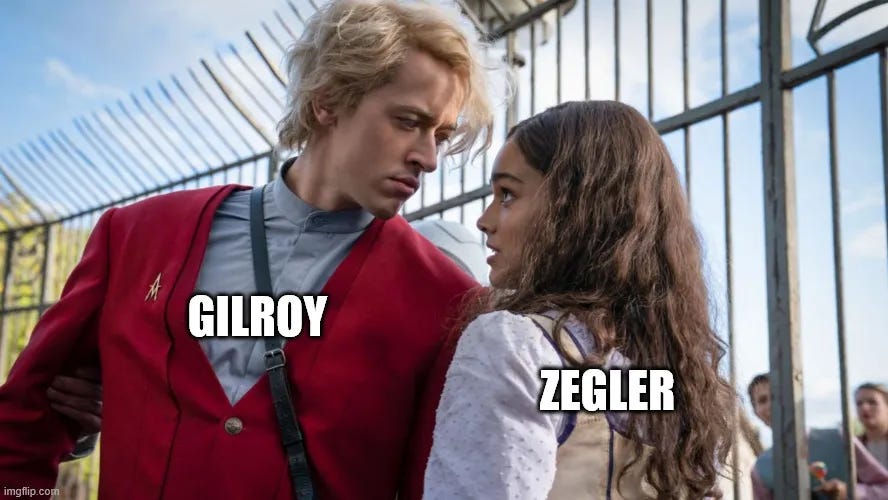
As for prestige TV generally, I don’t watch it, unless you count House of the Dragon (you shouldn’t). It’s honestly gotten to the point that I barely know which TV shows fall into this category,4 and had to Google examples.
I have started only three of these (Breaking Bad, Deadwood, Better Call Saul), and finished exactly one (Breaking Bad). I was a teenager back then, and had more energy, less hate flowing through me, and more of a desire to keep up with what other people were talking about. Even so, I always had in the back of my mind this devilish little voice going ‘… is that it?’ Don’t get me wrong: Breaking Bad is a perfectly good crime drama with little to reproach, yet there was, I felt, a huge discrepancy between how people spoke about it, and what it actually was. In general, I can’t help but feel that this esteemed medium is actually in many ways a lower form than others: it doesn’t have the discipline of stage, the efficiency of film, the complexity of prose, or the interactivity of games. It also has to have mass appeal to justify the cost, which comes with drawbacks.
I am not going to say that this is exactly how I feel about Andor: it really is very good, and deserves to be called good, yet I do feel that the current discourse errs on the side of hyperbolic praise. This is not helped by Andor’s online fanbase, which borders on insufferable - on platforms like Reddit,5 no-one can say a word against any aspect of Andor without being sneered at, personally abused, and generally shouted down by all the scintillating individuals who think alike. This, if anything, makes me more critical of the show, because when fans default to bullying to defend something, you have to ask questions about what they’re defending, and whether such fans are worth a damn.
The purpose of this post, then, is to do two things:
a) to help readers appreciate Andor for what it is, instead of measuring it against expectations distorted by the hype.
b) to assure those who disliked any part of the show that they are normal, are not stupid, and are not committing some kind of moral infraction.
As a public service, I am hereby giving you permission to not like every single aspect of Andor, free of charge, and supplying you with arguments which you may or may not find agreeable.
You people don’t deserve me.
The padded-out Cassian Andor
It would be impossible for me to explain my ambivalence to Andor without first addressing Andor himself, the main character (sort of), for whom I have far less time than the show assumes me to have. To begin with, I originally wrote a bit here questioning the quality of Diego Luna’s acting as Cassian, which I have never been particularly impressed by. I have decided to cut it, a) because I cannot justify my subjective response in objective terms, b) because I am seemingly in the minority, and c) because I think my response may have more to do with writing than acting.
For me, the heart of the problem is that Andor is too-often in the spotlight, even when it would be better for him not to be. He gets more unnecessary content than any other character through both seasons, presumably because the actor was under contract, and had to be given X amount of work even if there was only Y amount of story, and also because of his star power off the back of Rogue One. Accordingly, he also has the most over-engineered backstory in the show, much of which is, as we’ll see, redundant. This laborious origin story raises the expectations for Luna’s performance: when I have sat through many aimless scenes about a character’s childhood, I kind of expect that to have some kind of emotive payoff, and I can’t say that it did. On the other hand, the impact of Denise Gough’s performance (to name just one example) is increased by the fact that she has literally one line of backstory in the entire show, yet it’s more than sufficient to give depth to her character. In other words, less is more, an adage that applies to Star Wars more than any other IP.
To get into the specifics of Andor’s backstory, and why I can’t be bothered with it, we have to go back to the show’s beginning. The first half of Season 1 is full of flashbacks showing a young Andor in a jungle tribe with no adults, speaking a nonsense language without subtitles. Apparently, their parents were all killed in a mining disaster. It’s weird (dare I say contrived?) that not a single adult survived, and there’s an implication that there was foul play. He was then adopted by Maarva (Fiona Shaw) and her husband Clem. Also, Clem is then hanged by the Empire for worker unrest. Also, he has a long-lost sister.
My general feeling about this backstory is that it involves way too many steps, almost all of them unnecessary. The unwieldy nature of it becomes clear when, for example, the sister thread is unceremoniously dropped and all but forgotten. To give Gilroy his due, he has produced a sort-of-coherent explanation for this omission, yet I think it says something that the interviewer still felt the need to ask the question. I am also one of the viewers who asked this question, and I’m not sure whether I’m totally satisfied with the answer. The cynical part of me says that this mystery thread was artificial intrigue, meant to make Cassian initially appear more interesting than he actually is. While I agree that a reunion would have been inappropriate for such a downbeat narrative, I’d have been content simply with confirmation of her death.6 I could make a scathing remark about mystery boxes and subverted expectations here, but you can probably autocomplete that thought.
The Clem thread also irks me, in that this injustice alone is a perfectly good reason for a young Andor to dislike authority, with no need for all those drawn-out childhood scenes.7 Also, speaking of misleading character-defining moments, the basis for Andor’s jungle backstory seems to be his line from Rogue One, when he declares that ‘I have been in this fight since I was six years old.’
Except, this emphatically isn’t what we’re shown in Andor: instead, we’re shown a normal working class man who has spent his whole life keeping his head down and minding his own business, and who spends much of the show’s runtime either refusing to get involved in the Rebellion or threatening to quit the Rebellion, even after being given many additional reasons to hate the Empire. With his escape from prison, his mother’s fiery speech denouncing the Empire, and the violence in his home town at the end of Season 1, it seemed like that would be the turning point, after which Andor would become the kind of committed revolutionary he claimed to be in Rogue One.
This did not happen: he instead spends most of Season 2 wavering and threatening to quit, and only finally sort-of committed because his girlfriend made that decision for him. Has there ever been a less decisive male lead in a spy/war drama? He won’t even put his foot down when he’s tricked into seeing a faith healer, which he thinks is a scam (and in real life, he’d be right). This is the story of Cassian’s life: other people make decisions he doesn’t like, he bitches but goes along with it. After a certain point, ‘I need to make my own decisions’ becomes equivalent to Jon Snow’s ‘I don’t want it,’ which we all rightly mocked. I’m glad they didn’t spin it out for five seasons as originally planned: can you imagine?
Re. the Rebellion, the ‘will they, won’t they?’ format is particularly tiresome, because we already know that Andor will commit to the fight: we’ve known that for nine years. And frankly, no-one saw Rogue One and wondered why a supporting character disliked a self-evidently evil regime. With its main(ish) character, Andor sets out to answer a question no-one was asking in the first place, because George Lucas had already answered it in 1977, with a couple of charred skeletons at the Lars homestead. We did not need to see Andor go through a laborious mid-life hero’s journey to understand that life under the Empire wasn’t good, especially when we have a whole host of other characters being harassed, tortured, shaken down, enslaved, and even threatened with rape by members of the regime.
Of course, Andor’s persecution does sometimes land him in interesting scenarios. Season 1’s high point involves his confinement in a brutal Imperial prison, where the prisoners are being murdered to keep military secrets. This was one of the most gripping pieces of dystopian drama I’ve ever seen, in no small part due to Andy Serkis’ brilliance as Kino Loy. It was also a high point for Andor himself, who excels as the unobtrusive outsider helping Loy to see the horrible truth and take action: this was one of very few plotlines where he is more active than reactive, and actually succeeds in making things happen, and the show is better for it.
On the other hand, his persecution can also land him in scenarios that make you want to bash your head against the wall. This was the case with his opening arc in Season 2, in which he steals a prototype TIE fighter,8 lands on a jungle planet, and gets captured by a group of cartoonishly stupid Rebels (called the Maya Pei brigade) who would be more at home in Idiocracy. This sequence goes on for only a few episodes, but it felt much longer, because every other storyline was off to a great start, and meanwhile I was being forced to look at Diego Luna looking glum in handcuffs (again) while a bunch of grown adults behaved like apes flinging shit at each other.
This unsophisticated comedy was:
a) A sharp tonal whiplash with the other, much darker plotlines, one of which involved an arranged child marriage, while another culminated in a brutal rape attempt.
b) Was also shown up by the more sophisticated comedy of Dedra Meero having an excruciating meal with her boyfriend’s abusive mother, which was funny, but also deeply uncomfortable to watch, and humanising for two key characters.
I am not going to say that I ever fell in love with Cassian Andor, because that would be an overstatement, but I will say that he became more tolerable in Season 2 through his relationship with Bix Caleen, who he wants to protect, but unfortunately she’s a traumatised drug user who puts the cause first and everything else second. One could sympathise with Cassian’s dilemma, though it did go on a bit too long, and had a very predictable outcome.
Cassian’s ongoing conflict with the Rebel spymaster Luthen also somewhat endeared him to me: Cassian still cares about individuals, whereas Luthen only cares about the big picture, and is prepared to sacrifice anyone for the cause. This was a better dynamic than they had in Season 1, in which it was just Cassian being shifty and noncommittal while his future was always a foregone conclusion.
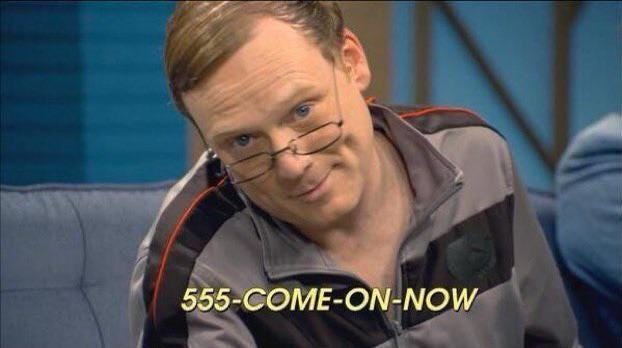
Ultimately, though, it’s difficult to believe that Cassian is the resolute informant-murdering revolutionary from Rogue One, because the series shows us nothing of the kind, instead giving these traits to other, more engaging characters (Luthen and Kleya).
The Tragedy of Darth Vel the Nepo-Baby
If Andor himself is inconstant and profligate with the audience’s time, he is at the very least inoffensive in terms of his personality: he’s literally just some guy, and not the worst of guys. The same cannot be said for Vel, a character I became frustrated with due to her frankly dogshit leadership, unearned authority, and inability to learn from her mistakes. These are all valid character traits if properly addressed, but I am not sure they were.
I had mixed feelings about Vel by the end of Season 1: her bad attitude is very much present when we meet her on Aldhani, where she leads a disastrous Rebel heist, which would have been even more of a bloodbath if she had been left to her own devices without Andor’s intervention.9 She has the put-upon air of a line manager at a post office, and an abrasive, inflexible style of command that makes her utterly unsuited to leadership in an informal military (or any military). It is therefore no surprise to learn that she was only given this authority because she is a relative of Mon Mothma. This, by the way, constitutes a major plot-hole, in that Mon is having childhood friends killed to hide her connection with the Rebellion, while openly associating with her Rebel cousin who could be captured and interrogated at any time. Regardless, Vel is the definition of a nepo-baby, and it shows. She’s kind of like the anti-establishment version of Caitlyn from Arcane.10
Even so, I warmed to Vel a little towards the end of S1, due to her tragic lesbian relationship with Cinta, who puts the cause before their relationship (it’s a Theme). There was a lot of angst and yearning, similar to what we would later see with Cassian and Bix: it seemed like Gilroy was on to something. Also, Vel is clearly out of her element on her homeworld Chandrila, which is bafflingly conservative for the future capital of the New Republic,11 and therefore homophobic.
My sympathy for Vel evaporated, however, in Season 2, in which she pretty much gets Cinta killed through sheer arrogance. This happens after she shouts down a young man at a rebel briefing on Ghorman, ordering him not to bring a blaster to their mission. This guy is not a soldier, does not know Vel, and she does not have the experience or force of personality to inspire confidence, as we saw on Aldhani. He is also a man in his twenties, and if you know anything about men in their twenties, particularly the kind who join insurgencies, you know that snapping at them and belittling them in public is not how you win them over. She treats him with utter disrespect on his own homeworld, though he is risking his life just by being at the meeting, and she refuses to even explain why she is asking them not to bring blasters. How hard would it have been to explain the risk of friendly fire?
(For anyone thinking along the lines of ‘well, Vel’s a girlboss and she shouldn’t have to tiptoe around fragile male egos,’ I will remind you that Cassian spent a good chunk of Season 1 tiptoeing around Vel’s fragile female ego, and finding indirect ways to address her dangerous incompetence without provoking her. So, let’s not go down that road.)
So, obviously, the guy brings a blaster to the mission anyway, which anyone sans brain damage could have predicted. Then, Lezine, a bull-headed alpha male moron, who may actually have brain damage, wanders in and proceeds to assault this armed man in a crowded street for no reason. Cinta is shot, Lezine is immediately forgiven for some reason (or more accurately, for no reason), and the poor young fool gets a withering speech from Vel about how it’s all his fault. This totally glosses over Vel’s own role in this farce, and it seems that we (the audience) aren’t supposed to hold her responsible either.
In short, I hated this scenario because it took three idiots to create this tragedy, yet only one of them was held to account, and he was the youngest, least experienced, and possibly the least privileged of the three.
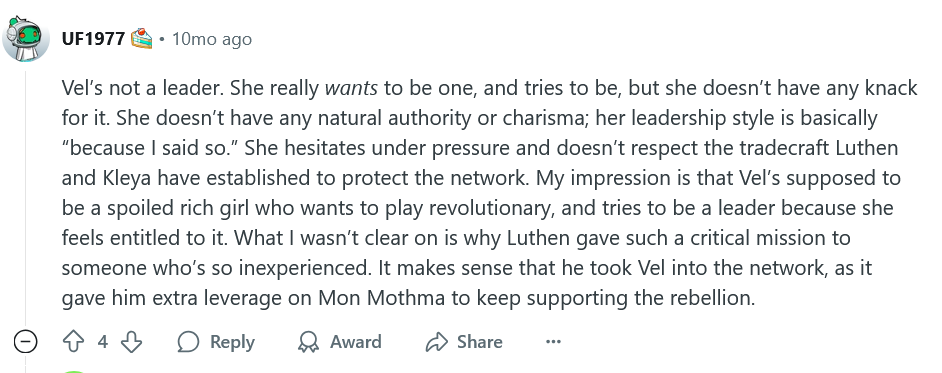
The whole incident is clearly supposed to further highlight Rebel incompetence, which is pretty much a primary theme of the show (for some reason).12 However, after Aldhani and the Maya Pei circus, the death of Cinta serves only to beat a dead horse, which has already been reduced to jerky at this point, and to bury a gay.
In the context of Andor’s depiction of rebels, Luke Skywalker’s ability to shoot straight, get on with people, and not soil himself truly does make him seem like the Chosen One. It appears that one Tatooine boy is worth a billion Chandrilans.
The good
So, why did I say at the top that I consider the show an overall success?
Well, fortunately, the bad is largely confined to these two storylines, and almost everything else is stellar. Part of the reason Luna looks so lackluster (to me, at least) is that basically every other actor in the series is delivering a show-stopping, mesmerising, career-defining performance, and the show’s original characters are generally written with great care and realism. The quality of the production is also incredible, especially in Season 2, which featured some of the finest props, costumes, and locations we’ve seen in Star Wars or sci-fi generally.
To note just a few things that stood out to me:
Syril Karn was a pleasant surprise. In Season 1, I feared that Syril, as a right-authoritarian loser, and also one of not many young white men in the show,13 was going to be a crude strawman of everything we’re constantly told is wrong with young white men. Fortunately, this was subverted very elegantly in Season 2. Syril is one of the most tragic characters in the whole series, and was handled with far more nuance and humanity than expected. He spends his whole life trying to be independent of his abusive mother, only to end up dependent on someone who might be even worse. By the time he finally sees the truth, it is far too late, and with his senseless death, the tragedy is complete. It’s a very believable depiction of a type of person who may be naive and needy enough to buy into the regime’s propaganda, but was never really evil at heart. In his insecure striving, Syril went far beyond what the system demanded of him, and yet still ended up a victim of it. As Gilroy says, ‘Fascism eats its young.’
Dedra Meero may be the most compelling Imperial we have yet seen. While perhaps less excusable than Syril, we have just enough context to understand her ruthless scrabble to climb the ranks. She grew up an orphan, suffering deprivation and likely abuse, so we can infer that for her, money and status has always been a matter of life and death. She is also very much an underdog in the ISB’s hierarchy, emphasised by the fact that she is always the only woman in the room. She does many terrible things, not least making a pawn of Syril,14 yet even she is disgusted by the orders she is expected to give on Ghorman: she never wanted the posting, and she is only as responsible as any replaceable servant of the Empire, a cog in a machine that uses her up and discards her. Her fate at the end of the series is one of the most chilling and pathetic, and we can’t help but pity her.
The fact that they depicted an Imperial officer attempting rape. This scene has been divisive among fans, but I agree with Tony Gilroy’s comments: he felt that it would be dishonest to omit the reality of sexual violence in regimes like the Empire. The fan backlash against this scene is testament to its power and necessity: with a single scene, Gilroy makes the Empire uglier, realer, and far more personal than anything we have seen in the past decades. For many years, there have been Empire fanboys who find the faction ‘cool,’ enjoy its Hugo Boss uniforms, and also enjoy making contrarian ‘the Empire did nothing wrong’ arguments: those guys have been awfully quiet since this episode dropped. Much of this fanboyism surely stemmed from how far removed exotic superweapons like the Death Star are from everyday reality, and from how the Empire’s victims have often been faceless and dehumanised. As the saying goes, ‘The death of one man is a tragedy; the death of millions is a statistic.’ By the same token, it is far more disturbing to see a woman sexually assaulted than to see the destruction of Alderaan and its anonymous population. To those who feel that Gilroy went too far, I would point out that what real regimes are doing as we speak is far more routine, systematic, and sadistic than the single opportunistic rapist depicted by Andor: if holding up a mirror was the goal, then if anything Andor did not go far enough. If they wanted to be really topical, they’d have shown men dying from injuries after being sodomised with objects,15 women forced to pose naked in front of Imperial flags, pro-rape protestors, and politicians openly declaring that ‘everything is legitimate.’ If you were shocked by Andor’s one rape scene, then you must have a very selective relationship with the news.
Speaking of: they produced a very frank, timely, and up-front critique of Israel, and especially the role of scumbag Western journalists and politicians in both obfuscating and drumming up support for genocide. It has been said that one day, everyone will have always been against this: Andor is against it right now, when it counts. (Watch this lose me subscribers. Sorry lads, this is not a pro-Israel publication, and never will be.)
[EDIT: Apparently, Mon’s speech was written and filmed in early 2023. However, I’m leaving this point as-is, because a) I think it says something that they committed to this version, in view of the very specific connotations of genocide and genocide-denial in 2025; and b) the earlier Guardian piece (linked above) notes the parallels between Aldhani and Palestine in S1. I think Gilroy knew what he was doing.]
Elizabeth Dulau’s performance as Kleya is absolutely captivating, and the character is so well written. Again, as with Dedra, the key here is restraint: Kleya’s flashbacks arrive much later in the series, and are indispensable to both Kleya and Luthen’s characters.16 ‘Less is more’ has been the entire philosophy with this character, and she is a fascinating blend of strength and vulnerability. Her grief at the end of the series, breaking through iron self-control, is pure catharsis for the audience, and hits hard.
Genevieve O’Reilly is magnificent as Mon Mothma, and the show does great things with her character, exploring her road to rebellion through alienation from her class, represented by her selfish husband and reactionary daughter. I had somewhat mixed feelings about the depiction of Chandrila: while internally consistent, it now seems wildly inappropriate as a future capital for the New Republic, or any free society, being the most elitist and socially conservative planet we’ve yet seen.17 However, as a backdrop for this version of Mon, it’s very effective. Her plot is also more precarious than others, thanks to the existence of Vel and the security risk she represents, but we can ignore that for Genevieve’s sake.
Anton Lesser as Major Partagaz makes for a very interesting villain in that, while he is essentially running the Gestapo, the man never appears to be particularly cruel or unpleasant on a personal level, nor does he seem like a ‘true believer’ in Imperial ideology. He even has likeable qualities, as a perceptive and fair-minded manager of his subordinates, and it’s easy to see why he holds the high rank he does. In many ways, he appears to be a very ‘normal’ public servant: it just happens that the service he runs is about torturing and murdering people. This is a far more impactful depiction of fascism18 than those in which fascists are characterised as monsters from whom we can easily distance ourselves. Partagaz is very human: he just happens to go to work at the torture factory every day. There is even a touch of pathos in his fate, committing suicide after his failure rather than waiting to be made an example of:19 again, there’s a sense that everyone is expendable under the Empire, and the regime will devour even its most loyal servants. It’s also clear that he hears the truth in Nemik’s words at the end, and it’s even possible that the tears he shed are from remorse.
There are a number of moments of warmth between Cassian and minor unnamed characters, like the technician in the opening of S2, and the clerk at the hotel on Ghorman. The series is very much about the importance of ordinary, seemingly insignificant people and of small acts of rebellion, as Nemik’s manifesto so beautifully articulates, and it’s a good look. These were the Cassian scenes I enjoyed most.
Orson Krennic and Saw Gerrera are both reprised wonderfully. Ben Mendelsohn is a menacing presence as Krennic, arrogant and self-assured, while Forest Whitaker’s canonical version of Saw is vastly better than those we’ve seen in animation and video games, in which he is far too normal. Whitaker, on the other hand, plays a paranoid maniac with the vibes of a cult leader, yet in a key scene with Wilmon we finally begin to understand why people follow him.
Stellan Skarsgard is, of course, spectacular as Luthen Rael. Fantastic character, very complex and layered, and perfectly complemented by Kleya. Every Luthen scene is a great scene, and the man carried the Rebellion (and the show) on his back.
Closing thoughts and predictions
To conclude, I would agree that Andor is far more good than it is bad, though I am not one of those who hail the show as ‘perfect,’ which is a very strong word for anything, especially in Star Wars.
The choice of such an unimposing supporting character as a protagonist is an odd one, particularly when the actor was on the cusp of aging out of the role. They also greatly pare back his Rogue One defining traits of ruthlessness and commitment, i.e. the two most interesting things about him, instead giving these traits to characters like Luthen and Kleya, to their benefit and Andor’s loss. His stretched-out backstory and the dropped mystery thread feel like padding, offering only the illusion of intrigue. He has his moments, but I don’t find them proportionate to the time spent with the character.
If I was supposed to find Cassian more interesting than I did, then I also felt that I was supposed to find Vel more sympathetic than she was. She is not only a walking plot-hole, but a dreadful nepo-baby with one of the most abrasive personalities on Chandrila (and that’s up against some very stiff competition). Probably, the most interesting thing about her storyline is that it lowkey makes homophobia canon in SW: some viewers won’t like that, but I have found it very cringey and jarring in the past when Disney has depicted even the genocidal Empire as drawing the line at homophobia.20
As for those saying that Andor represents a turning point for SW and Disney (a new hope, if you will), I am not so sure. My Youtube feed is currently flooded with thumbnails calling Andor ‘The End of Star Wars’ or ‘The End of Disney,’21 the idea being that the show is so good it demands a reset of the whole IP/content model. The success of Andor will surely increase demand for mature SW, and its merits will expose the next round of cash-cow shows to the derision they deserve. However, we have to be realistic about what kind of quality to expect in the future. What we are most likely to see from Disney are not Andor-successors, but Andor-imitators, which will have mature themes and high production values, and will be fawned over by critics in the way that expensive shows with a veneer of maturity invariably are. However, maturity does not equal good writing - porn is mature, but we don’t call it high culture. If Andor is the first two seasons of Game of Thrones, then the Andor-imitators will be closer in quality to late-GoT and House of the Dragon, i.e. they will leave much to be desired.
In other words, calibrate your enthusiasm.
Nevertheless, Andor is an excellent show in its own right, and breaks new ground for Star Wars in many respects. The depiction of the Empire especially is outstanding, showing the ugliness of real imperialism in a very grounded, personal, and timely way, while also showing the officious banality of this torture-regime through the ISB and its disconcertingly ‘normal,’ humanised staff. The cast is also overwhelmingly good: there are so many brilliant actors that ten viewers might all name a different favourite, and they’d all have valid grounds.
In short, you have my permission to enjoy Andor, as well as my permission not to.
Average night out in a major city.
I guess Succession’s been and gone, and it’s Severance now?
A wretched hive of scum and wankery, surpassed only by Twitter. I don’t use it, and never have, but unfortunately it remains the dominant platform for nerd talk, so Google keeps pulling me back there.
Maybe passed on by Rebel intelligence, years after he had given up looking for her? Idk man, I’m not a screenwriter.
There are people doing Marxist deep-reads of it, according to which the tribe bit is essential, because it suggests that life was bad under the Republic before the Empire, and that the conflict is therefore all about the masses vs capital rather than Rebels vs Empire. In this reading, Luthen represents a true revolutionary, hence his conflict with Mon and the other Senators, who are pretty much the people he is revolting against. This is perhaps a valid reading of Luthen, but unfortunately the heroes all end up fighting on behalf of pampered aristocrats like Organa and Mothma anyway, while arrogant nepo-babies like Vel are given authority over more able subordinates like Cassian. This class conflict within the Rebellion is hinted at, but never properly resolved, because that would break canon. So, maybe the New Republic goes to shit specifically because of the death of Luthen and the revolutionary spirit he represented, in which case the ending is even more bleak, and we’re left wondering what it was all for. You’re telling me Luke blew up the Death Star so he could be oppressed by Oligarch A instead of Oligarch B? What is this, a 21st century democracy?
No-one ever says why this fighter was important; from the design alone, we can see it never went into mass production, because it’s never in the OT or Rogue One. So, the best they could do with Cassian was have him steal a machine we know isn’t important, and then sit tied up for two episodes. Can you see why I don’t like him?
Can’t believe they got the cause’s most viral propagandist crushed by a box…
Would recommend
’s blistering critique of Arcane’s second season. It goes into Caitlyn’s elite entitlement and ‘gas the poor’ politics, and how inappropriately the show lets her away with it.Like, not even conservative for the advanced pseudo-democracy it’s supposed to be; conservative for the 1400s.
They also made the Rebel leaders on Yavin a bunch of arrogant politicians who are needlessly obstructive and disrespectful of Luthen and Kleya, and seem to have authority over the military leaders, represented by the far more sensible Draven. Every time Star Wars depicts Senators, I suddenly start to understand Anakin’s preference for the evil wizard model of government.
Not counting those who are gay (Nemik), evil (various), or gay and evil (Heert).
And yet the moment when she stands up to his mother is genuinely heartwarming, and leaves us with far more complicated feelings towards Dedra than we had before.
The source for that detail is a NYT article that is predictably paywalled. God forbid people actually know what our governments are supporting. I encourage you to take a good long look at the Wikipedia article at least, and if you want more detail, there’s this report. I am absolutely convinced that those trotting out racist filth about Palestinians as ‘human animals’ who are inexplicably violent have not skimmed a single UN report in the last twenty years. They would much rather slander and threaten the current reporter.
Also, they show that you do not require two whole seasons to explain why a rebel became a rebel. The first flashback does more for Luthen and Kleya in two minutes than two whole seasons did for Cassian. I can’t help but feel that fans of ‘slow burn’ television mistake long-windedness for depth.
Also, kind of ridiculous that the aristocrat Mon has been a Senator since she was a teenager and held the same office her entire adult life, but is presented as the champion of democracy: obviously, there’s no such thing as term limits, never mind free and fair elections. And don’t get me started on Bail Organa. This is par for the course with SW, but if anything Andor leans into it instead of clarifying or improving upon Lucas’ nonsense lore.
Defined in a broad, vernacular way.
From Langren’s reaction, it’s clear that he anticipated the suicide, and allowed it out of respect for Partagaz. Again, Langren is a very normal and even pleasant-seeming guy who just happens to work at the torture factory: he’s a similar age to Partagaz, and both must have lived most of their lives under the Republic.
Shout out to Star Wars: Squadrons and the awkward moment when a male Imperial officer starts talking about his husband. I know that gay Nazis are a thing, but gay Nazi marriage? Come on now. Next you’re going to be telling me they’re paying for HRT for trans stormtroopers.
If you ever catch me using this kind of title, please kill me immediately. I saw people hailing Dune: Part Two as ‘The End of Cinema’ not that long ago, and it was just as hyperbolic and clickbaity then. I like new Dune well enough, but let’s be sensible.



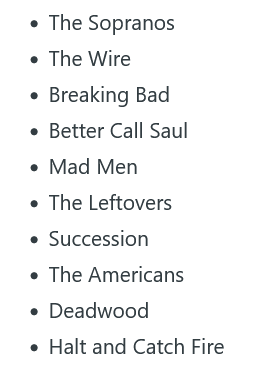
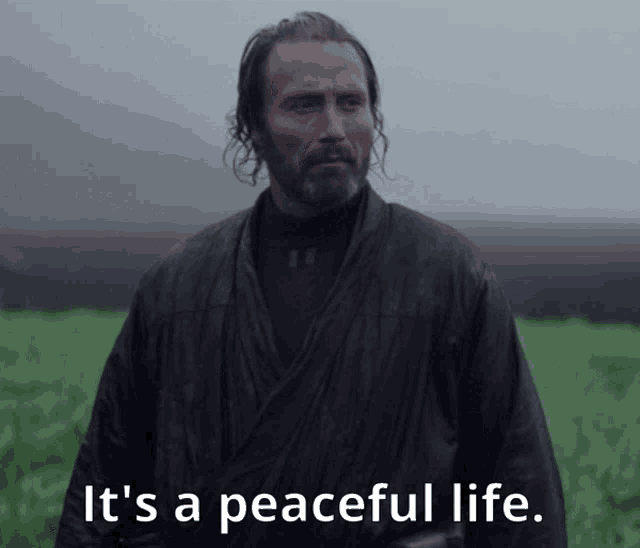

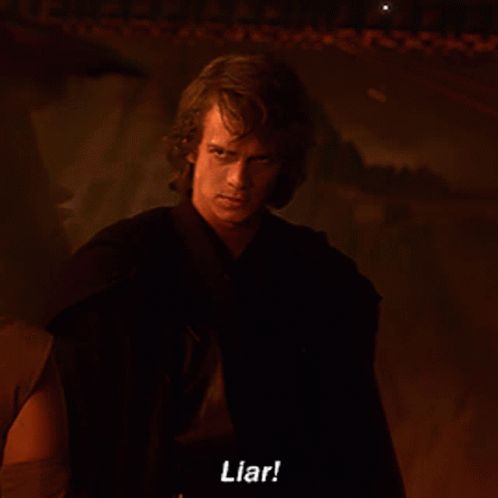
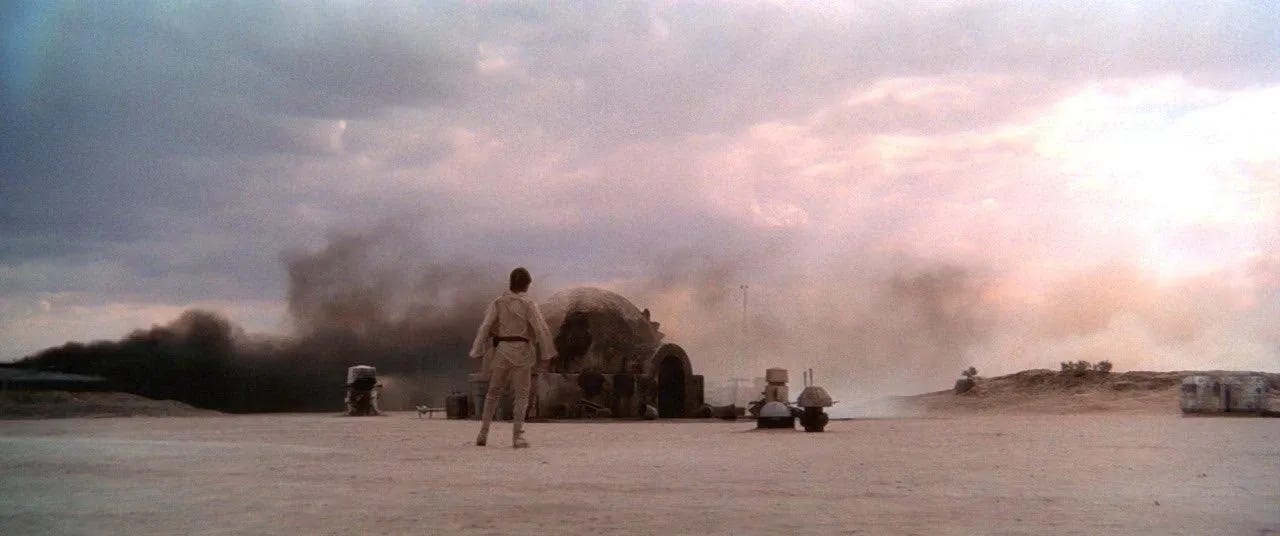
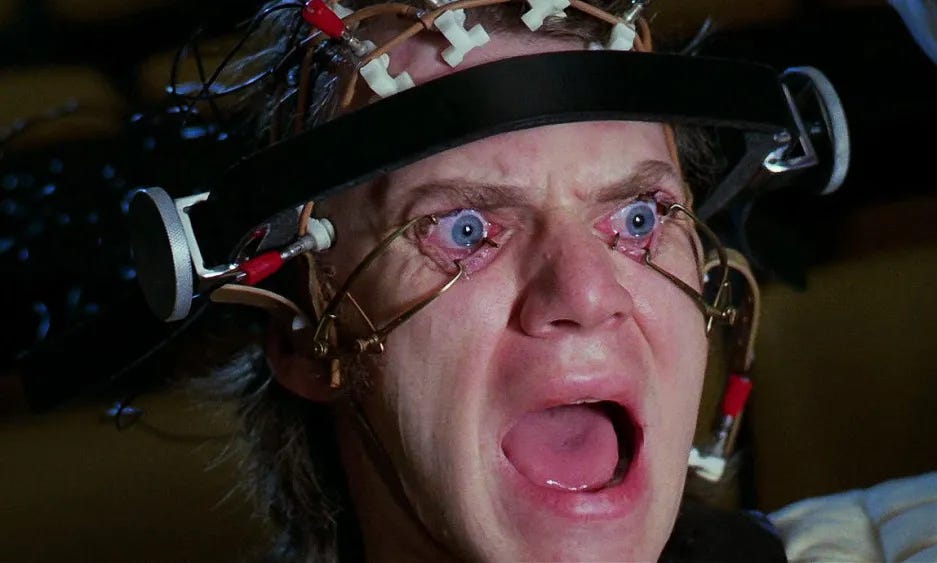
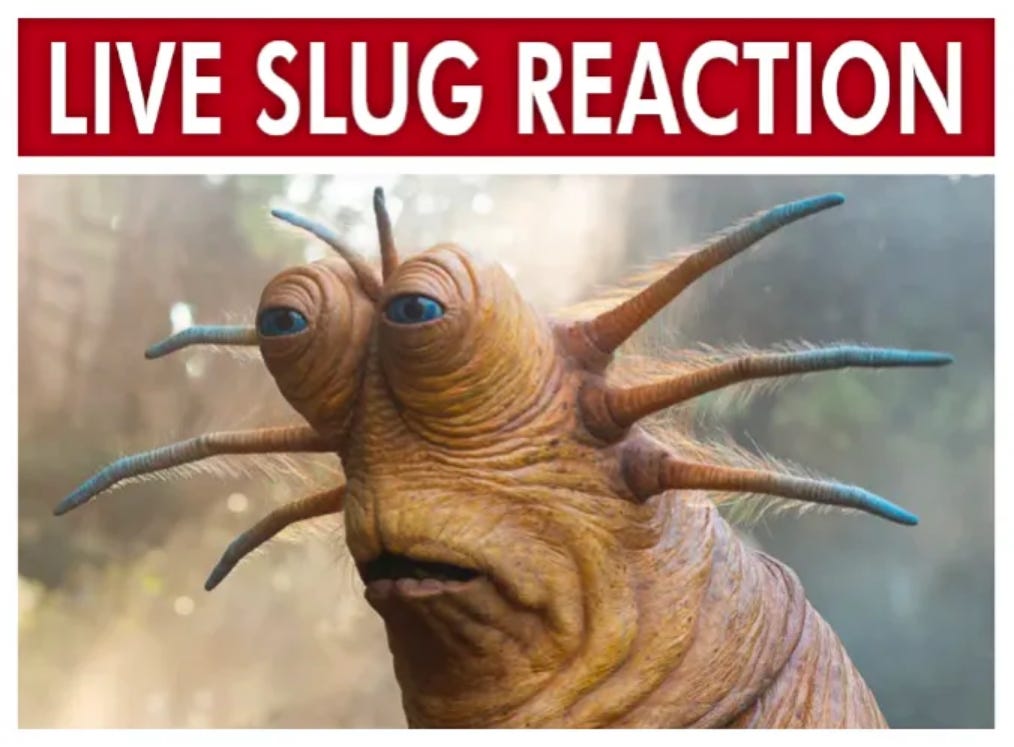
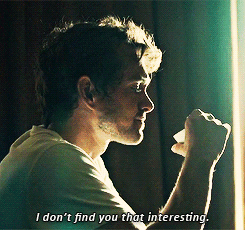
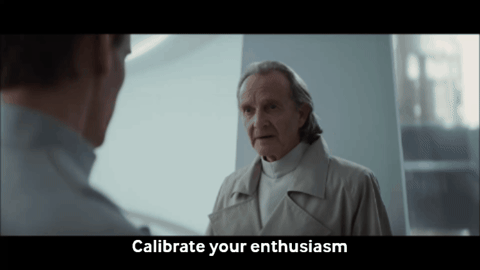
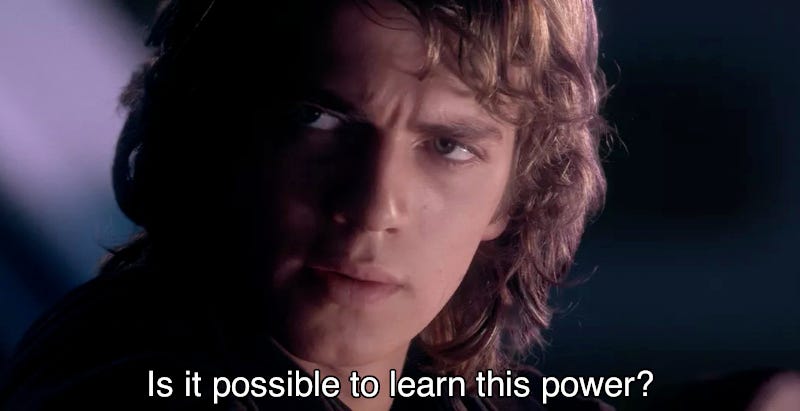
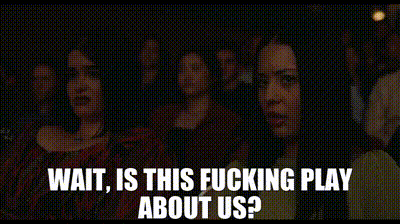

Thanks for an interesting and more critical take on Andor. I think reading this has helped me be a little more grounded in my appreciation of the show as a work, even though I fully intend to remain obsessed with it.
You covered a lot of ground, so I'll just try to react/respond in broad strokes.
I think the pacing is more to my taste as I tend to enjoy long-windedness. That said, I wholly agree that the Cassian orphan planet backstory ended up being basically spurious, though I like that the sister is unresolved. To me, that reads not as something missing, but as Cassian dedicating himself to the real people, community, and purpose he's found, instead of the ghosts of the past.
I think Cassian fits best as a Forrest Gump type character; he's inexplicably always present at the crux of major events, a fact that the show notes/explains with its few allusions to the Force. Poor Cassian gets a much rawer deal from destiny than Luke. This format is at its best when Cassian is on Ghor, both times, and worst with the Mya Pei brigade.
Regarding Cassian's "will he, won't he" with the Rebellion, I think that the intended framing is: Post Narkina V prison planet/Rix Road revolt, Cassian needs to fight the empire, and devotes himself to Luthen. However, sustaining that impulse is hard-- Cassian is constantly torn between his commitment to his ideals and his commitments to Bix, Wilmon, etc. So it's less about the uncertainty in the outcome than understanding the journey. That said, this doesn't quite land for me due to the heavy handedness of Bix' departure making the choice for him, which may have read better with more seasons of development.
Ultimately, Cassian is charting a course from self-interested motives to galactic selflessness. (I want to find my sister -> I'm going to die for the galaxy's chance at freedom), and its these added stakes to the character that make him much more compelling when rewatching Rogue One.
I actually disagree with you regarding the necessity of showing the evil of the empire in detail compared to the OT. Andor evolves the empire from self-evidently evil because of manichaean evil Dark-Side tendencies, to a functioning bureaucratic state that many people live under, that does grinding, inexcusable evil in a way that the Syril's and Dedra's and Partagaz's of the galaxy can assent to as good. This is a much more mature and realistic kind of villainy, and it poses and then answers the question: what does it take to break out of such a system when you don't have a lightsaber?
Also, this is mass media. As a rule, if you think something is too heavy handed, there's a million viewers who still completely missed it.
You raised some good points with the character of Vel, who I think is a victim of "telling not showing." Luthen describes her and Cinta as top operatives, but we only see them on two missions that go awry. To Vel's credit, she and Mon have the least to lose of any of the characters; they have the familial wealth to simply post-up on a remote planet and ignore the empire for the rest of their lives. I think Vel is meant to ask the viewer "Why would someone who has access to the good life give it up to go live as a shepherd/guerilla on Aldhani?"
Unfortunately for Vel, Mon Mothma does a better job framing those exact questions, your questions about Chandrilan politics notwithstanding.
I won't rehash your praise of the many great performances in the show except to second them.
Per the interview you linked, Tony Gilroy has been studying authoritarianism and revolution for a long time. I think a lot of the power of this show stems from its ability to distill this history into a single coherent instant. In a media environment that is mostly fragmented noise, Andor rings clear:
"Of all the things at risk, the loss of an objective reality is perhaps the most dangerous. The death of truth is the ultimate victory of evil. When truth leaves us, when we let it slip away, when it is ripped from our hands, we become vulnerable to the appetite of whatever screams at us the loudest."
I don't think I've quite said everything I want to, or said what I have as well as I'd like, but your essay provoked me to think more deeply about the show, so thank you.
I’m somewhat more forgiving of dangling threads given the inherent uncertainty of how much show Gilroy was going to be allowed to make, although I agree that Andor got more flashbacks than necessary. Honestly all the Saw stuff felt more unnecessary. Yeah he’s an interesting character but nothing he does actually impacts the plot of Andor. Even his interactions with Wilmon don’t seem to change the Wilmon-Cassian-Bix dynamics in any meaningful way.
The Cassian “will he won’t he stay a Rebel” struck me as a missed opportunity, because with a few tweaks it could have been a question of whether he would ultimately become a Luthen true believer or strike his own path as a more humanist rebel. I honestly thought that’s where it was going, until the out-of-the-blue Bix abandonment. Why did he want to abandon the Rebels entirely, vs finding another role with a different leader? All the other Rebels low key hate Luthen too! Working with Draven to start the Rebel version of the OSS would have been an option.
Bix was an awkwardly tied up plot - they had to put her on a bus because she’s not there in Rogue One, but it’s like they ran out of time to come up with a good reason. So she bails on Cassian (after apparently getting pregnant with what’s implied to be his baby) because she cares so much about The Cause, but then she just goes and hangs out on a wheat farm safe house raising a kid? Her whole conflict with Cassian was that she felt undervalued and wanted a more active role where she wasn’t always being protected! I’m guessing with more seasons, a more “satisfying” tragic end to their relationship could have been arranged.
For me the biggest missed opportunity was that they never really engaged with the fact that *Cassian was absolutely right about the Ghorman resistance*. They were hotheaded and incompetent and ultimately played right into Imperial hands, accomplishing nothing but making it easier to sell the massacre as justified. You’d think Cassian would at least *mention* this. But Luthen was right too - Ghorman did burn bright. The show does a great job portraying the evil of the Empire, but it lets the Rebels off a bit easy - after all, the ISB and Luthen were essentially on the same side on Ghorman, intentionally ramping up the temperature to force a confrontation. They had different ultimate purposes, obviously, but both believed that the Ghorman massacre served their interests and considered the Ghormans themselves as little more than pawns for that purpose.
The show doesn’t really engage with this, which should have been a real crisis point between Cassian and Luthen (and the various factions they represent). Instead Ghorman just gives a reason for Mothma to give a speech directly to the audience and then we move on to the Death Star plot. Ultimately the writers do the same thing to Ghorman that the Rebels and Imperials did - use it to drive the plot and then lay it aside once that purpose is served.